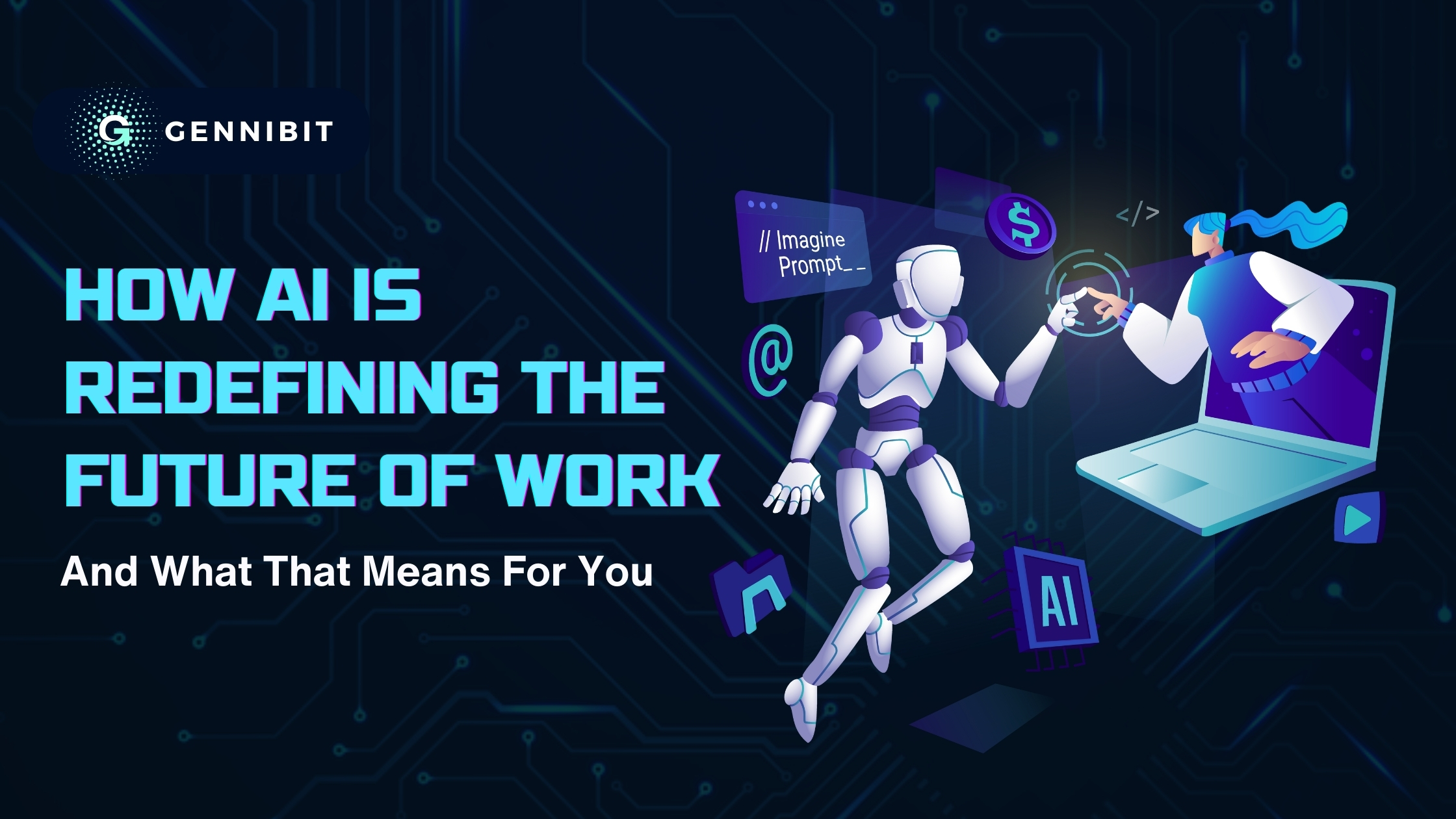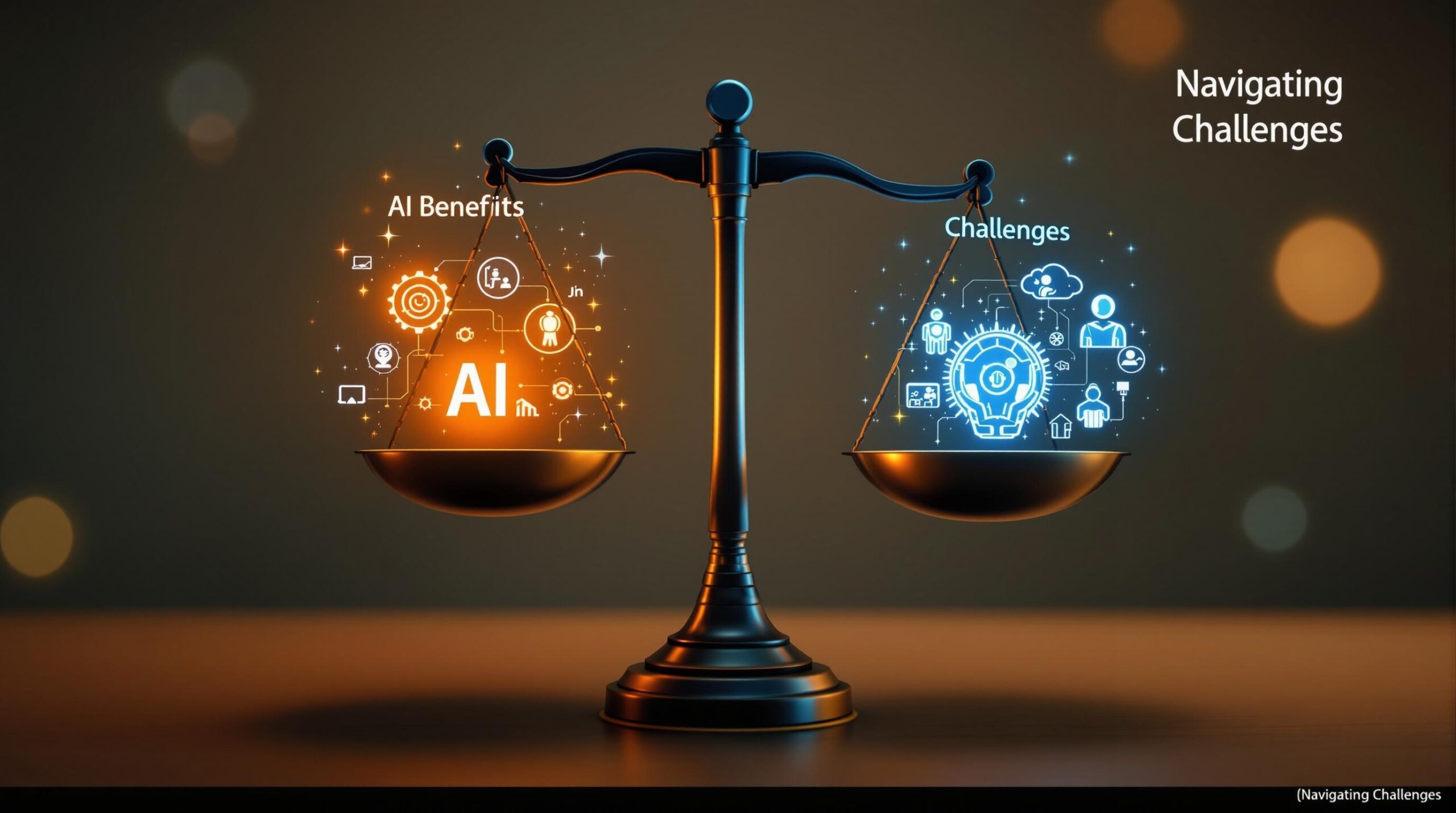Have you ever imagined a workplace where AI seamlessly handles complex tasks, optimizes workflows, and drives innovation? AI and the future of work are becoming inseparable, as artificial intelligence revolutionizes industries, reshaping careers, and enhancing productivity across the globe.
From machine learning algorithms predicting consumer behavior to generative AI creating content indistinguishable from human work, AI is no longer a distant concept—it is a driving force across industries.
According to Deloitte, 75% of organizations are redesigning their talent strategies within two years due to generative AI, while 32% of companies with advanced AI expertise are already implementing changes.
This rapid adoption isn’t just reshaping industries; it is redefining individual careers and creating new opportunities.
In this article, we will explore how AI is transforming the workplace, the emerging job roles it is creating, and how you can prepare for the future by upskilling for AI-driven careers.
The AI Evolution: How it is Reshaping Workplaces
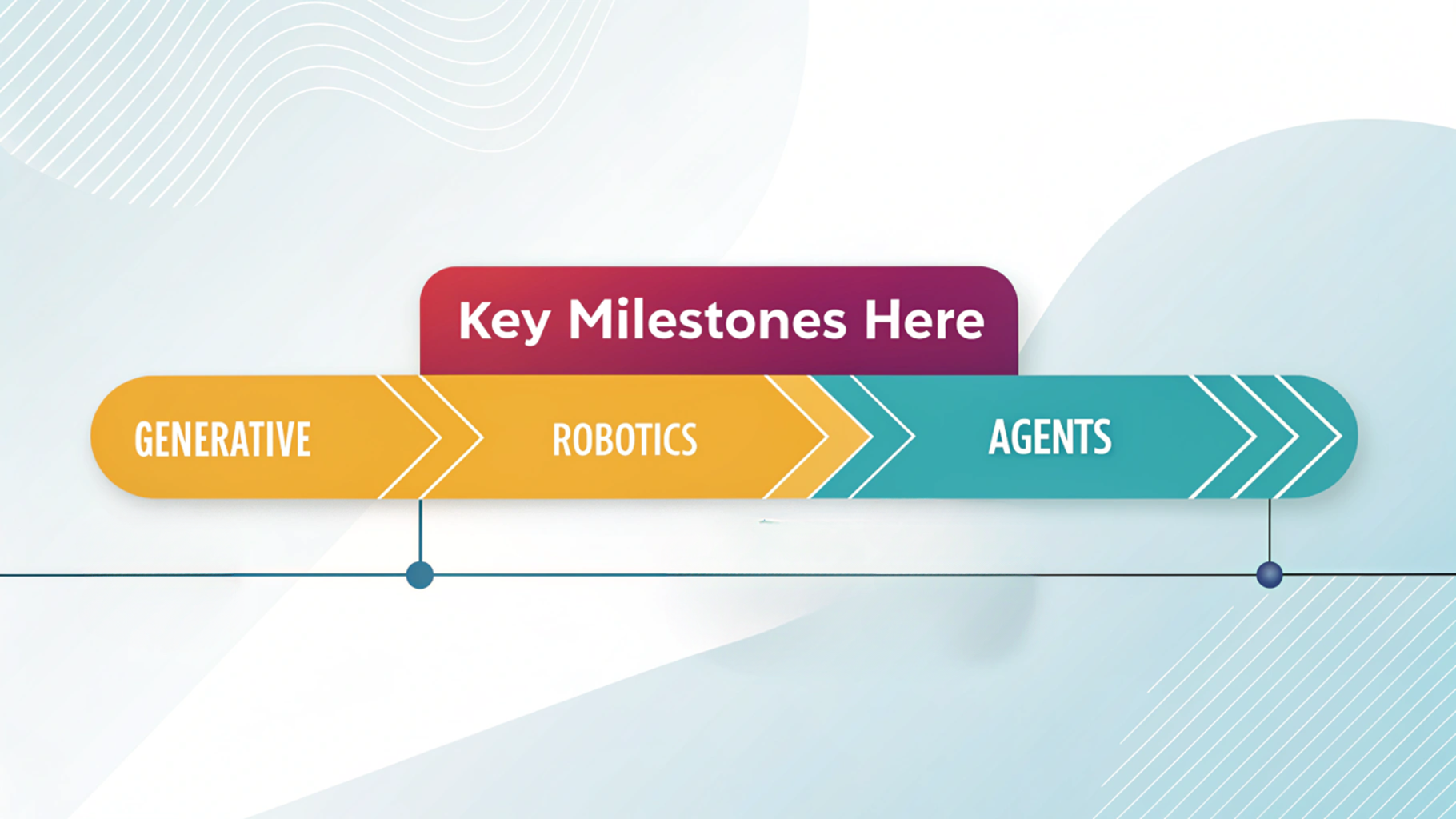
Over the last decade, AI has transitioned from a futuristic idea to an indispensable tool shaping the way we work. Its rapid advancement has introduced capabilities that were once thought impossible, fundamentally altering workplace dynamics. Â
Technologies like generative AI, robotics, and AI agents are at the forefront of this transformation. Generative AI, for instance, is revolutionizing content creation and design, enabling businesses to produce high-quality outputs in record time.Â
Robotics is streamlining manufacturing and logistics processes, reducing errors, and increasing efficiency. Meanwhile, AI agents, powered by machine learning, are transforming customer service by providing instant, accurate responses and personalized support. Â
These technologies are now deeply integrated into our daily workflows. Picture AI-powered tools that optimize schedules, automate repetitive tasks, and enhance team collaboration.Â
Tools like ChatGPT are being used to draft reports, while platforms such as Slack integrate AI to manage tasks and improve communication. Even hiring processes are evolving, with AI screening resumes and assessing candidates’ compatibility. Â
This evolution is more than a technological leap, it is a workplace revolution. As these advancements continue to unfold, they are not only enhancing productivity but also reshaping roles and expectations in every industry. Â
How AI is Redefining Work
 AI is not just another technological advancement; it is a powerful tool that is reshaping the way we approach work. By automating repetitive tasks and enabling innovation, AI is freeing up time and resources for more creative and strategic endeavors, redefining roles across industries. Â
Automation of Repetitive Tasks Â
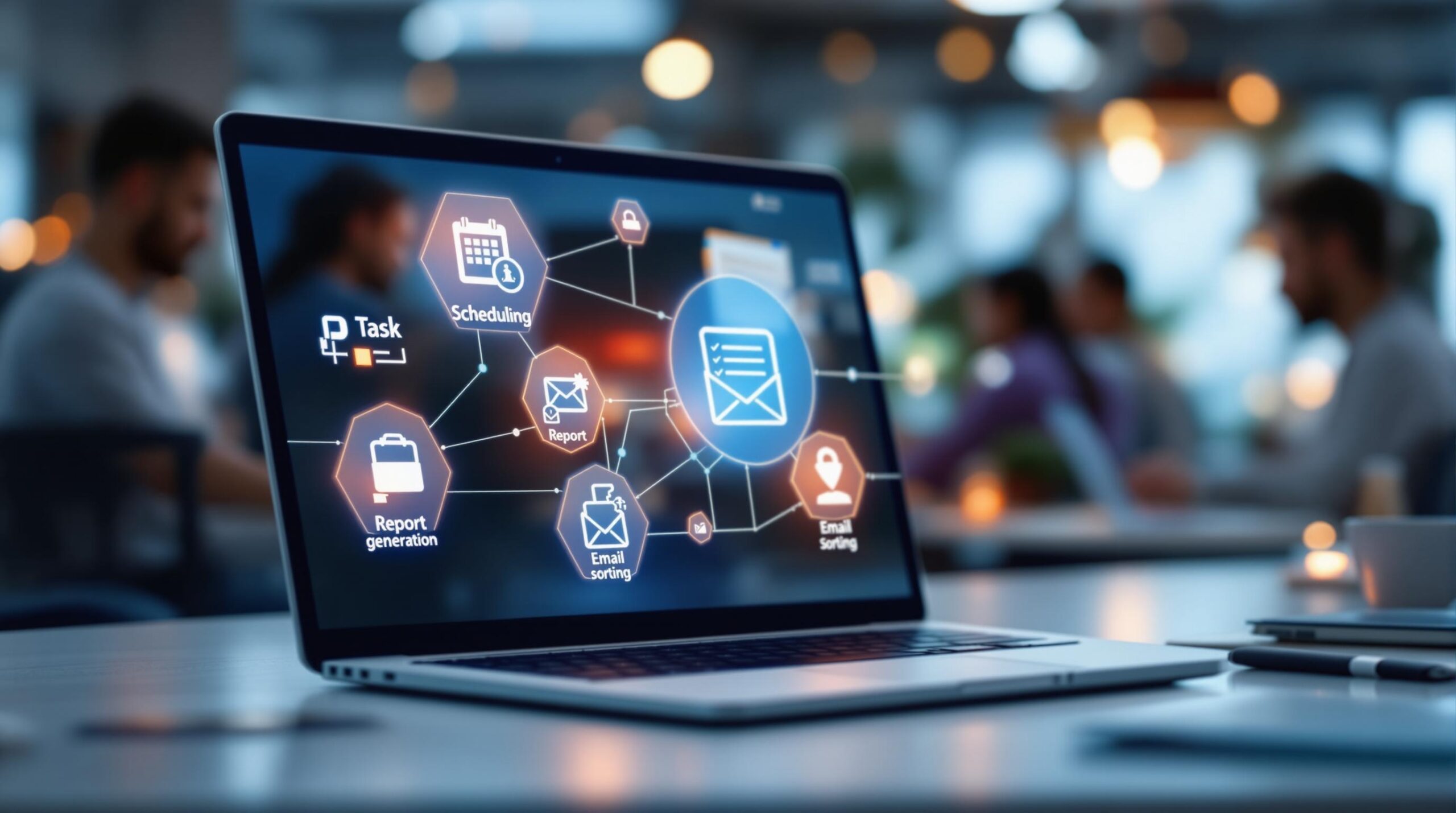
Gone are the days when employees spent hours on mundane tasks like data entry, scheduling, or report generation. AI-powered tools are now handling these activities with speed and precision.Â
This shift allows professionals to focus on problem-solving, strategy, and innovation areas where human creativity truly shines.Â
According to McKinsey, by 2030, activities accounting for up to 30% of hours currently worked across the U.S. economy could be automated, with generative AI enhancing roles in STEM, creative, and business professions.
Emerging Job Roles Â
As AI technology evolves, so do career opportunities. New roles such as AI developers, ethical AI consultants, and AI trainers are becoming critical. These careers focus on creating, refining, and ensuring the responsible use of AI systems.Â
Additionally, hybrid roles that combine human judgment with AI-powered insights are emerging, bridging the gap between technology and traditional expertise.Â
For instance, marketers are leveraging AI tools to analyze consumer behavior while crafting personalized strategies that resonate on a human level. Â
Fostering Creativity and Innovation Â
Rather than replacing creativity, AI is amplifying it. Tools like generative AI enable professionals to design, write, and brainstorm more efficiently.Â
Architects can use AI to simulate designs, while writers use it to draft ideas or overcome creative blocks. Beyond creativity, AI is encouraging new ways of working, such as remote collaboration through AI-enhanced platforms and smarter resource allocation through predictive analytics. Â
AI is not just about doing things faster, it’s about doing them smarter and better. By transforming how we approach work, it is fostering a more innovative, efficient, and dynamic workforce that thrives in an AI-driven world.
Industry-wide Impacts of AI
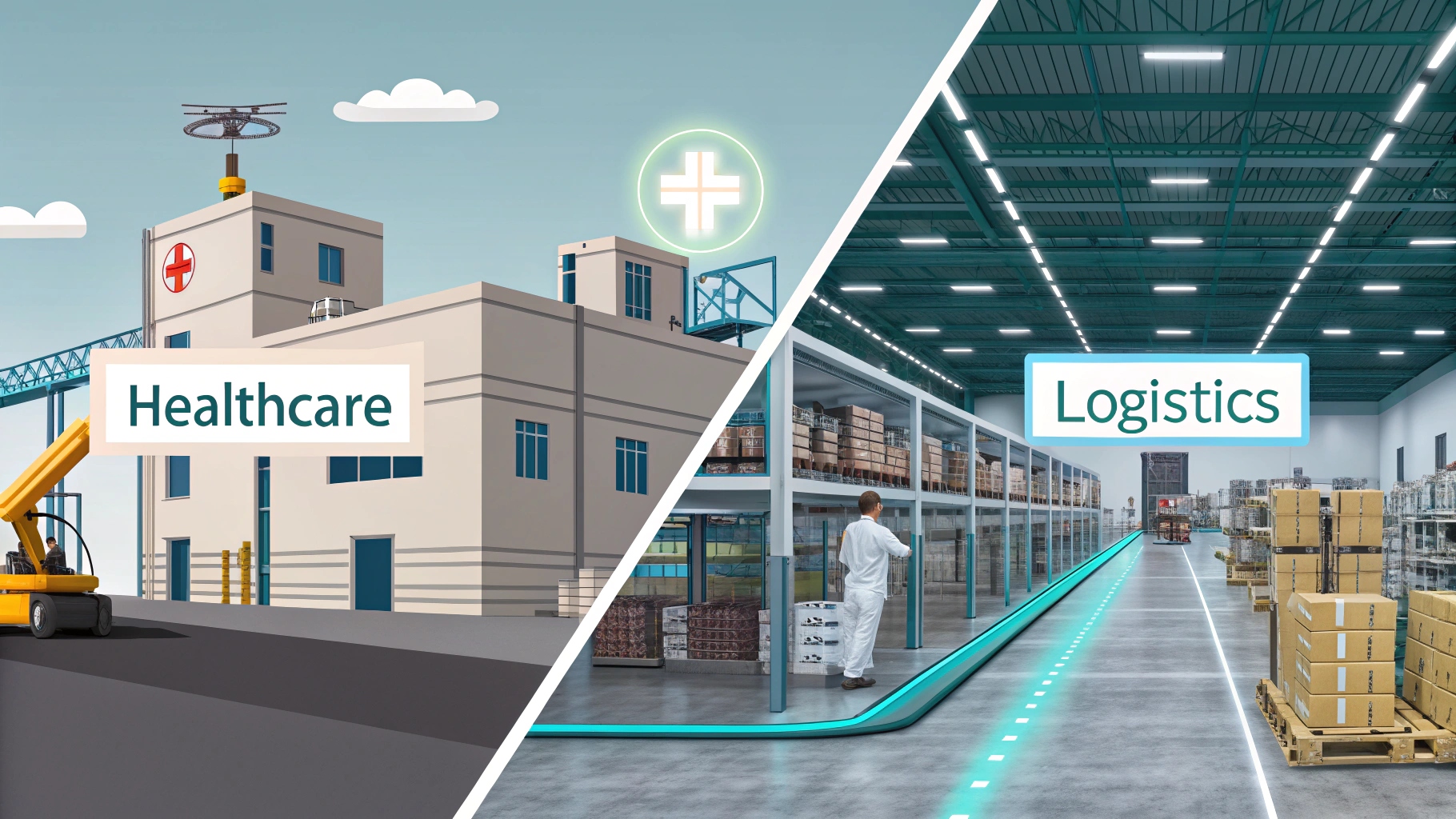
AI’s influence spans across industries, reshaping workflows and redefining what’s possible. From marketing to logistics, its integration is creating both challenges and opportunities, transforming how businesses operate and innovate. Â
Marketing and Sales Â
In marketing, AI is revolutionizing how brands connect with their audience. Tools powered by machine learning analyze customer behavior to deliver hyper-personalized experiences.Â
For example, recommendation engines on platforms like Amazon suggest products tailored to individual preferences, driving sales. Chatbots and AI agents are also reshaping customer service, providing instant responses and improving user engagement. Â
Healthcare Â
AI is transforming healthcare with advancements like AI-powered diagnostics and predictive analytics. Tools such as IBM Watson Health assist doctors in diagnosing diseases with greater accuracy and speed, while predictive models help identify at-risk patients, enabling proactive care.Â
These innovations streamline workflows and improve patient outcomes.
Finance Â
The finance industry benefits significantly from AI in areas like fraud detection and risk assessment. Machine learning algorithms identify unusual transaction patterns, reducing fraudulent activities.Â
Robo-advisors are helping investors make data-driven decisions, while AI tools optimize loan approval processes, making them faster and more reliable. Â
Logistics and Supply Chain Â
In logistics, AI is enhancing efficiency by optimizing routes and predicting demand. Companies like DHL use AI-driven analytics to forecast shipping trends and manage inventory more effectively.Â
Robotics in warehouses, such as those used by Amazon, are streamlining operations, reducing human error, and speeding up deliveries. Â
Opportunities and Challenges Â
While AI is creating opportunities for innovation and efficiency, it is also presenting challenges. Businesses must address issues like workforce displacement, data security, and ethical considerations.Â
However, these challenges also open doors for roles in AI ethics, cybersecurity, and workforce retraining. Â
The future of productivity and profitability
AI is evolving from simply automating tasks to driving complex decision-making and autonomous actions. This shift marks a new era of productivity and profitability, where businesses are empowered to achieve more with fewer resources. Â
From Task-Based AI to Autonomous Agents
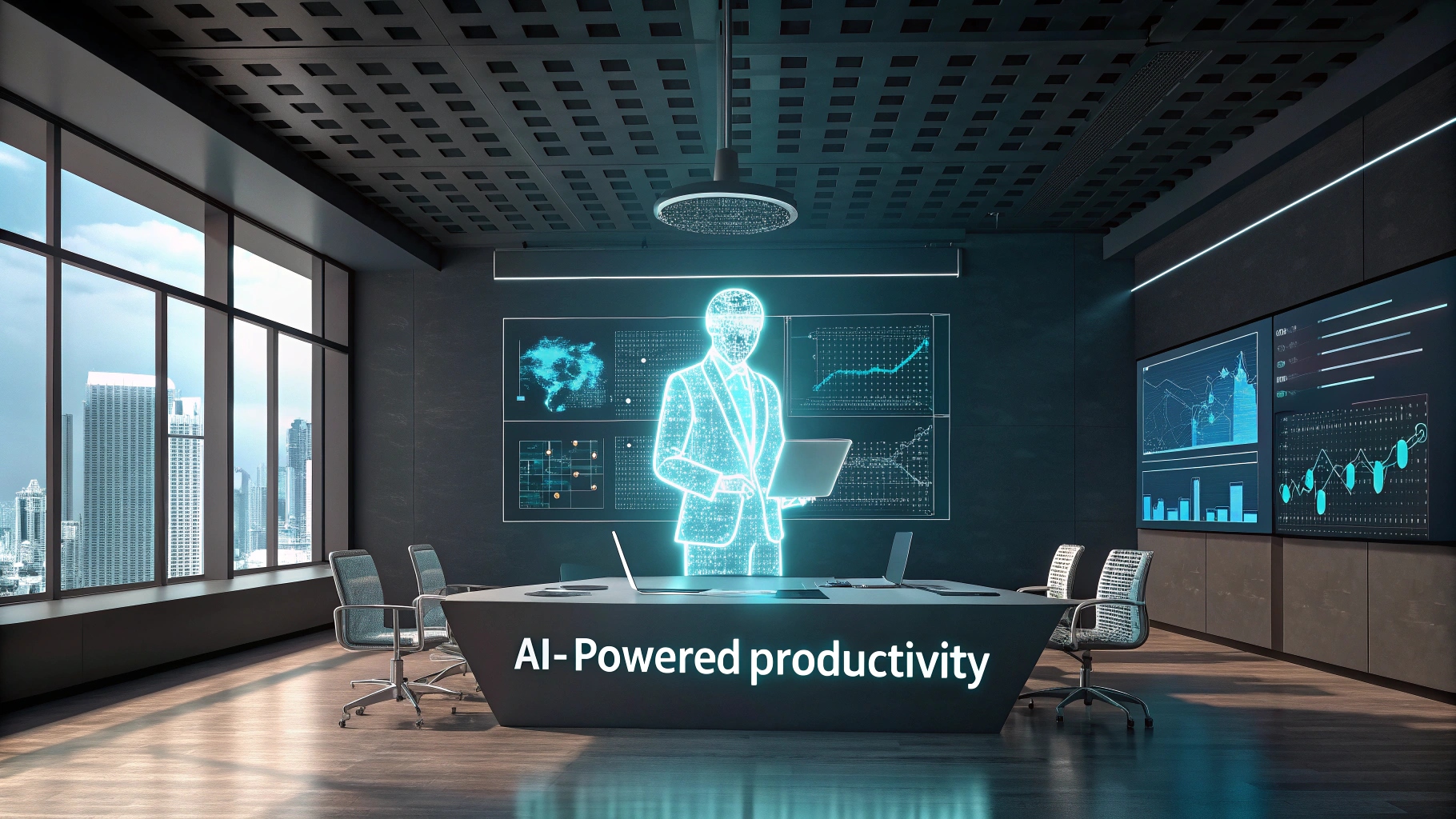
The next frontier of AI innovation lies in the transition from knowledge-based tools to agentic AI, autonomous systems capable of executing complex workflows without constant human oversight.Â
According to McKinsey, this transformation will move technology from thought to action, enabling organizations to manage intricate processes seamlessly.Â
Imagine AI agents not just scheduling meetings but negotiating contracts, managing projects, or even conducting customer outreach independently. Â
Adoption of AI Agents in Enterprises Â
Enterprises are already recognizing the potential of autonomous AI. Deloitte forecasts that by 2025, 25% of enterprises using generative AI will deploy AI agents, with this number rising to 50% by 2027.
These agents are designed to handle tasks with minimal human intervention, significantly enhancing operational efficiency.Â
For instance, AI agents could manage end-to-end supply chain operations, reducing delays and improving accuracy, or automate customer onboarding processes in financial services, saving time and costs. Â
Profitability Boost Â
The economic impact of AI cannot be overstated. McKinsey estimates that AI could contribute an additional $2.6 trillion to $4.4 trillion in global corporate profits annually with banking, high tech, and life sciences reaping the most significant benefits.Â
By integrating AI agents and Agentic AI into their workflows, companies can reduce operational costs, improve decision-making, and unlock new revenue streams. Â
The shift toward AI-powered autonomy is more than a technological upgrade—it’s a game changer. As businesses adopt these tools, they stand to revolutionize their operations, maximize efficiency, and achieve unprecedented levels of profitability.Â
The challenges of AI in the workplace
While AI is unlocking immense opportunities, its integration into the workplace also brings significant challenges. From fears of job displacement to ethical concerns and a widening skills gap, these obstacles must be addressed to ensure a balanced and inclusive AI-driven future. Â
Ethical Concerns Â
The rise of AI raises critical ethical questions. Issues such as AI bias, data privacy, and decision-making accountability are becoming more prominent.Â
AI systems, if not carefully designed, can inadvertently perpetuate biases or misuse sensitive data. For instance, predictive algorithms in hiring might unintentionally favor certain demographics, leading to discriminatory practices.Â
As organizations embrace AI, they must prioritize transparency, fairness, and accountability in their AI deployments. Â
Job Displacement Â
One of the most discussed concerns about AI is the potential for automation to replace jobs. The fear is understandable, AI agents and automation tools are already taking over repetitive tasks in industries like logistics, customer service, and manufacturing.Â
AI won’t replace you, but someone using AI will.†— Adeleke Samuel’s updated perspective: “AI Agents will likely replace repetitive tasks entirely by 2025.
But the story doesn’t end with job loss. Automation also creates opportunities by freeing up time for creative, strategic, and high-value work. Moreover, emerging AI roles—such as AI trainers, data scientists, and ethical AI consultants—are opening new career pathways.Â
The challenge lies in helping workers transition into these roles through reskilling and upskilling initiatives. Â
Skills Gap Â
The rapid adoption of AI is creating a significant skills gap. This highlights the urgency for workers to adapt. Upskilling in areas like machine learning, data analytics, and AI ethics is no longer optional, it is essential for staying relevant in the evolving job market. Â
As AI continues to reshape workplaces, addressing these challenges head-on is crucial. By fostering ethical practices, embracing continuous learning, and preparing for a collaborative AI-human workforce, businesses and individuals can navigate these complexities and thrive in an AI-driven world. Â
Upskilling for AI and the Future of Work
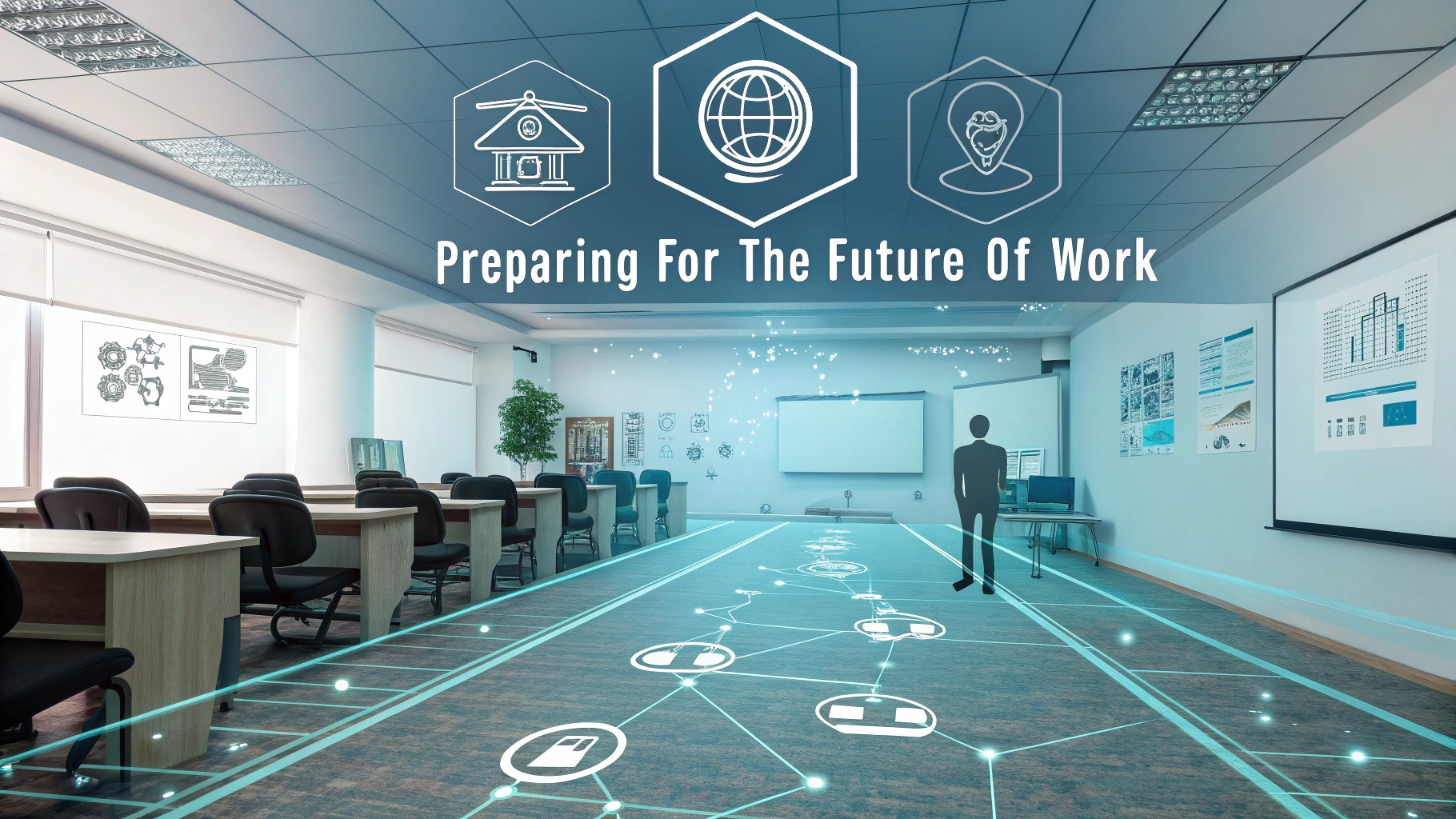
As AI continues to redefine the workplace, preparing for the future isn’t just about understanding the technology. It is about aligning your skills and mindset with the new demands.
Here’s how individuals and organizations can proactively adapt to thrive in an AI-driven world. Â
Skill Development: The Foundation of AI Readiness Â
To stay competitive, developing the right skills is essential. Begin by adopting AI tools relevant to your field. For instance, marketers can explore generative AI platforms for campaign creation, while project managers can leverage AI-powered tools for resource optimization. Â
Building data literacy is equally critical.Â
Understanding how to analyze and interpret data will help you collaborate effectively with AI systems and make informed decisions.
Structured learning programs, such as online courses in AI and machine learning, provide an excellent starting point. Websites like Coursera, Udemy, and edX offer affordable courses tailored to various skill levels. Â
The Power of Soft Skills Â
While technical expertise is important, soft skills remain irreplaceable in the workplace. Critical thinking ensures you can evaluate AI-generated insights effectively.Â
Collaboration and adaptability enable you to work seamlessly in hybrid AI-human teams, where creativity and emotional intelligence often bridge the gaps AI cannot fill.
Organizations increasingly value these human-centric abilities as they complement AI’s technical capabilities. Â
Leveraging Resources for Growth Â
Fortunately, preparing for the AI future doesn’t have to break the bank. Many free and low-cost resources are available to help individuals upskill.
For those looking to deepen their expertise, structured certifications can open doors to advanced roles. Â
Generative AI Launchpad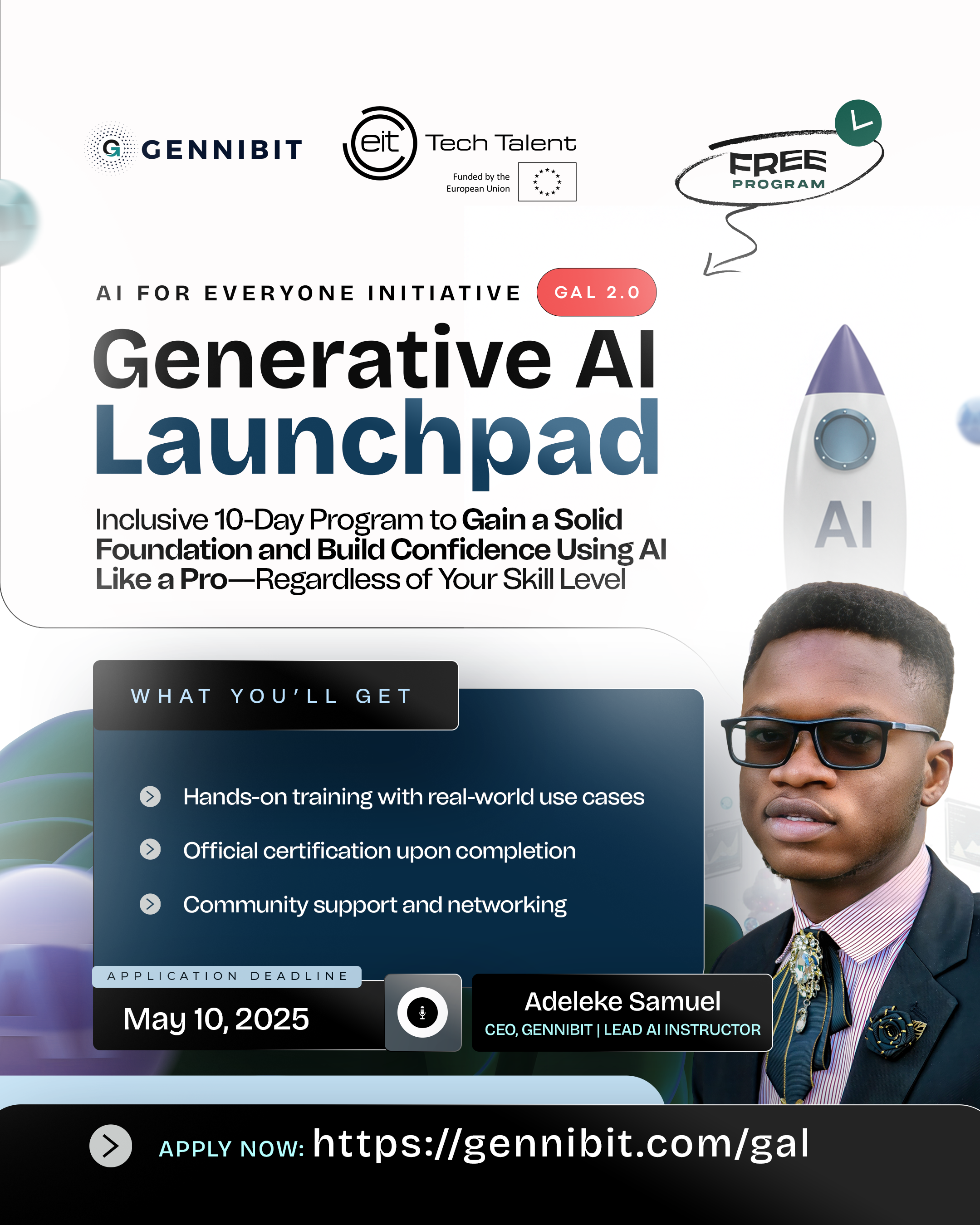
 Preparing for the future of work becomes much easier with the right tools and resources, and that’s where the Generative AI LaunchPad comes in.Â
This 10-day program is specifically designed to bridge the skills gap for both beginners and seasoned professionals eager to harness the power of AI in their careers. Â
A Hands-On, Project-Based Approach Â
Unlike traditional training programs, the Generative AI LaunchPad emphasizes practical learning through hands-on, project-based activities. Participants don’t just learn about AI, they actively build and deploy real-world projects that showcase their skills. Whether you’re exploring AI-powered tools for the first time or looking to refine advanced techniques, this program meets you where you are and takes you further. Â
Completely Free and Certified Â
One of the most exciting aspects of the Generative AI LaunchPad is that it’s entirely free. Thanks to a partnership between GenniBit and the EIT Deep Tech Talent Initiative, this program ensures accessibility for everyone, regardless of background or resources.Â
Upon completion, participants receive a recognized certification that can help bolster resumes and LinkedIn profiles, making it easier to stand out in today’s competitive job market. Â
Bridging the Gap Between Learning and Doing Â
The Generative AI LaunchPad isn’t just about learning concepts—it’s about applying them. Through this program, individuals can gain confidence in working with AI tools, from generative models to automation solutions, setting themselves up for success in AI-driven roles across industries. Â
AI is reshaping the world of work, and programs like the Generative AI LaunchPad are essential for equipping people with the skills and confidence to thrive. Whether you’re new to AI or looking to stay ahead, this program is the perfect opportunity to prepare for the future.
Stay Proactive and Future-Focused Â
Preparing for AI-driven work is an ongoing process. Embrace a mindset of lifelong learning, experiment with AI tools, and actively seek opportunities to integrate technology into your workflow.Â
By combining technical proficiency with human-centric soft skills, you will position yourself to excel in the future of work. Â
AI is a tool not a replacement and those who adapt today will shape the workplaces of tomorrow.Â
Conclusion
AI is no longer a distant concept; it’s a transformative force reshaping industries, careers, and the way we work. From automating repetitive tasks to unlocking creativity and innovation, its potential is vast. But to thrive in this new era, individuals must take proactive steps to adapt, upskill, and embrace the opportunities AI offers. Â
Now is the time to take action. Sign up for the Generative AI LaunchPad to start your AI journey or explore other free resources to enhance your skills. The workplace of tomorrow is being shaped today, and you have the chance to play a pivotal role. Let’s build the future together.

